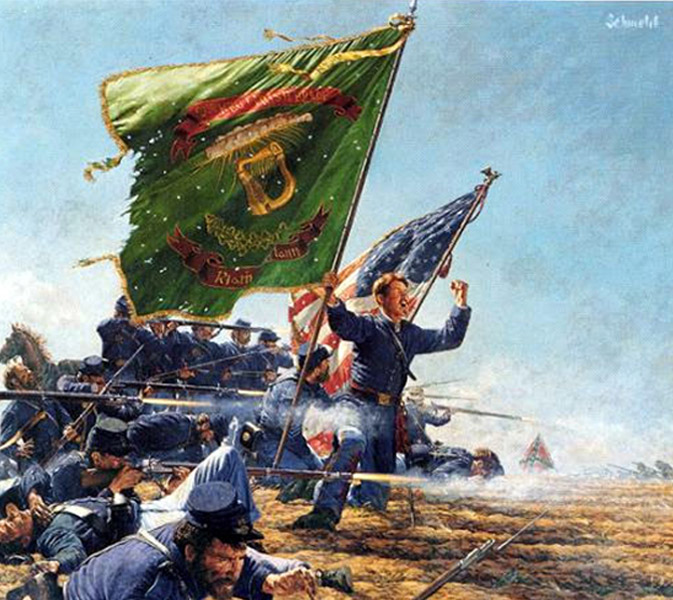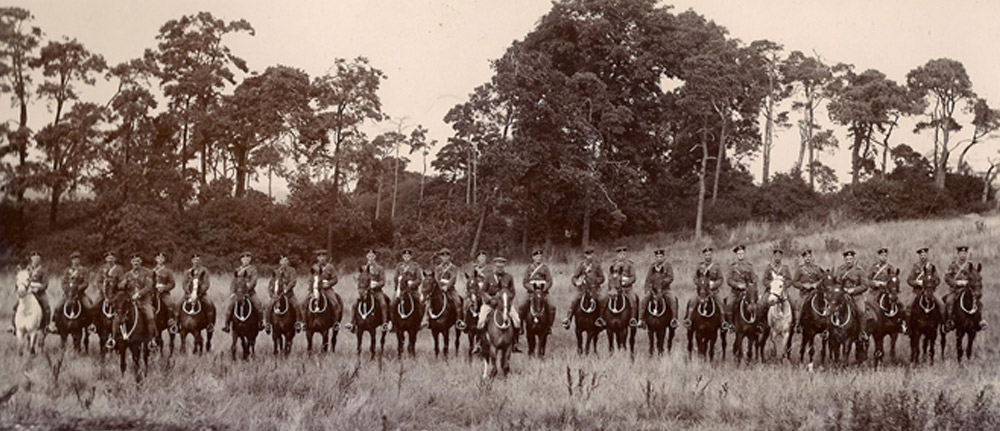
Until 1921 Ireland was part of the United Kingdom. As a thoughtful political observer once said. “It was too far away to be totally absorbed into the English state and too near for the attempt not to be made”. Throughout centuries the country suffered from that paradox often leading to brutal war and conflict. Yet despite the opposing background generations of Irishmen, of both native Gaelic stock and the Anglo-Irish took up arms for England sometimes fighting in their own country as in the 1798 Rebellion and later abroad as England’s burgeoning empire expanded. Irishmen in disproportionate numbers to the actual population also sought military service abroad. From France to Russia, to the United States and the Canadian provinces, from Scandinavia to Spain and even into the services of the Ottomans and the Algerians, Irish soldiers of fortune were found .From the 18th century they were actively recruited for English military service for the wars with France, and in turn by the French against England through the famous Irish Brigades. Recruitment accelerated with the American War of Independence, the Napoleonic Wars, the American- British War of 1812, and later in the century, the Crimea War and what became known as The Indian Mutiny. There were also many lesser occasions when Irishmen were in arms in far flung corners of the world. Throughout many of these campaigns it was possible to find Irishmen fighting against Irishmen on opposite sides as in the American Civil War.
So dependent had the British military become on Irish troops, especially for colonial and overseas service, that numerous military barracks and county militias were set up to act as training, recruiting and staging stations for to fill the levies for the regular British Army. As an inducement various regiments appealing to purely Irish recruits were formed liked the Connaught Rangers and Royal Dublin Fusiliers in the 1880’s. A disproportionate number of the British army officer class were also drawn from the Irish landed gentry. This would have a bearing in the later conflict of the Great War of 1914-18. However a foretaste of what was to come was revealed in the terrible American Civil War of 1861-1865. It is estimated that over 200000 souls, both native born Irish and 1st generation Irish Americans, fought in all the theatres and services of that war. Before the First World War huge numbers of Irish soldiers were also engaged in the Boer War, and indeed many Irish regiments bore the brunt of the Boers skilled fighting as the St Stephens Green and other Boer war memorials can attest. The tradition of military service was not diminished by the war in South Africa and on the eve of the Great War many of the regular British Army’s trained soldiers and Royal Naval personnel were native Irish, including a good proportion of Wicklow men.

